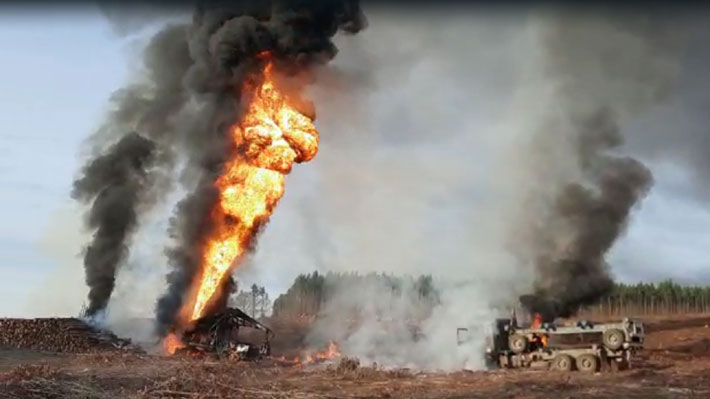The manager of the Association of Forestry Contractors, René Muñoz, expresses concern over measures that shift the responsibility of external security to companies, absolving the State of its obligations.
The Association of Forestry Contractors is evaluating all available legal options, including new claims before the ILO or protective appeals, to ensure the State fulfills its duty to provide security. The guild's determination is firm, and its fight for justice and workplace safety continues, as stated by René Muñoz, manager of the Association of Forestry Contractors.
In an interview with Pasado Meridiano on Radio El Conquistador, he voiced his unease regarding the modifications introduced by the Ministry of Labor to the National Policy on Safety and Health at Work. These changes, emerging in a context of extreme violence—especially in southern Chile—force companies to adopt measures to mitigate risks that, according to Muñoz, should fall under the State's jurisdiction.
The controversy stems from a complaint filed by the association with the ILO, denouncing the lack of adequate conditions to ensure worker safety in the forestry sector. In response, the State of Chile, amid renewing its labor safety plan, decided to incorporate requirements for companies to assume responsibilities for the external security of their operations.
Muñoz pointed out that this decision was made without direct participation from those affected and accused the Confederation of Production and Commerce (CPC) of failing to adequately advocate for the sector's interests. The measure has been perceived as an improper transfer of responsibilities that, constitutionally, belong to the State.
The guild's concern centers on the possibility that the new policy could set a dangerous precedent, where any security incident could be blamed on the company for not complying with policy guidelines—even if the root cause is violence and insecurity that should be controlled by authorities.
Additionally, he expressed concerns about the lack of long-term planning in the forestry sector by authorities, contrasting it with successful approaches in other regions like Mato Grosso, Brazil.
Muñoz criticized the implementation of emergency measures as temporary fixes, rather than sustainable strategies that consider the sector's future, including extended harvesting timelines for forests. He argued that companies should be seen as drivers of development and job creation, suggesting that investment will not be attractive without a safe and stable environment.
The full interview at the following link:https://www.youtube.com/watch?v=8WUXxUWxpeU







Comments (0)
No comments yet. Be the first to comment!
Leave a comment